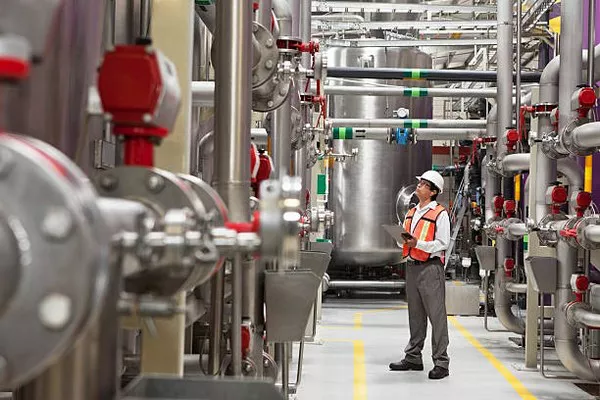A compressor is the heart of many essential systems, from air conditioning and refrigeration units to industrial machinery and even automotive applications. When a compressor refuses to turn on, it can cause disruptions, discomfort, and financial losses. In this article, we will delve into the common reasons behind a non-responsive compressor, the steps to diagnose the issue, and potential solutions. By understanding these factors, you can save time and money while ensuring your systems operate efficiently.
Power Supply Problems
Before delving into more complex issues, it’s crucial to start with the basics. Often, a compressor’s failure to turn on can be attributed to power supply problems. These issues include:
a) Circuit Breaker Tripped: Compressors draw a significant amount of power, and if the circuit breaker or fuse protecting the circuit trips, the compressor won’t receive the electricity it needs to start. Check the circuit breaker or fuse box and reset or replace them if necessary.
b) Loose or Disconnected Power Cables: Ensure that the power cables connecting your compressor to the electrical source are securely connected. Loose or disconnected cables can interrupt the power flow.
c) Voltage Fluctuations: Compressors require a stable power supply with the correct voltage. Voltage fluctuations or surges can damage the compressor’s electrical components, making it non-responsive.
Thermostat Issues
The thermostat plays a critical role in controlling when your compressor should turn on and off. If the thermostat is malfunctioning, it can prevent the compressor from starting. Common thermostat-related problems include:
a) Incorrect Settings: Check that the thermostat is set to the desired temperature and cooling mode. Incorrect settings can make the compressor think it should not turn on.
b) Dirty or Faulty Thermostat: A dirty or malfunctioning thermostat sensor may not accurately measure the room’s temperature, leading to incorrect decisions about when to activate the compressor.
c) Thermostat Wiring: Inspect the thermostat’s wiring for any loose or damaged connections. Wiring issues can prevent signals from reaching the compressor.
Capacitor Problems
The capacitor is an essential component of a compressor’s motor. It provides the initial electrical jolt required to start the compressor. If the capacitor is defective, the compressor may not receive the necessary boost to turn on. Common capacitor-related issues include:
a) Capacitor Failure: Over time, capacitors can degrade or fail, reducing their ability to provide the necessary startup voltage. Inspect the capacitor for bulges, leaks, or other signs of damage.
b) Weak Capacitor: A weak capacitor may still function but not provide the required electrical kick to start the compressor. In such cases, replacing the capacitor is necessary.
Contactor Problems
The contactor is a switch that controls the flow of electricity to the compressor motor. If the contactor is faulty or damaged, it can prevent the compressor from turning on. Common contactor-related issues include:
a) Contactor Stuck or Burnt Contacts: Over time, the contacts in the contactor can become stuck or burnt, preventing the flow of electricity to the compressor motor. Visual inspection can reveal such issues.
b) Contactor Coil Failure: The coil that controls the contactor’s operation may fail, rendering the contactor non-functional. In this case, replacing the contactor is necessary.
Refrigerant Issues
Low refrigerant levels can also cause a compressor to malfunction. Refrigerant is essential for cooling and compressing the air or refrigerant gas in the system. When refrigerant levels are too low, the compressor may not turn on due to safety mechanisms designed to prevent damage. Common refrigerant-related problems include:
a) Refrigerant Leak: Leaks in the refrigerant lines can lead to a drop in refrigerant levels. Professional technicians can detect and repair these leaks.
b) Low Refrigerant Charge: Over time, refrigerant can be lost through normal wear and tear. Periodic maintenance to recharge refrigerant levels is crucial to keep the compressor functioning correctly.
c) Blocked Refrigerant Flow: Obstructions in the refrigerant lines or components can impede the flow of refrigerant, causing pressure imbalances that prevent the compressor from starting.
Overload Protection
Compressors have built-in overload protection mechanisms to prevent overheating and damage. When the compressor motor draws too much current, it can trigger the overload protection, causing the compressor to shut down. Common overload-related issues include:
a) Motor Issues: A malfunctioning compressor motor can draw excessive current, triggering the overload protection. Motor problems may require professional diagnosis and repair.
b) Blocked Condenser Coils: Dirty or blocked condenser coils can cause the compressor to work harder, potentially leading to overload situations. Regular cleaning and maintenance of condenser coils can prevent this issue.
Conclusion
A non-responsive compressor can be a frustrating and costly issue. However, by systematically diagnosing and addressing the underlying problems, you can restore your system’s functionality and avoid unnecessary expenses. Whether it’s a simple power supply issue or a more complex problem with components like capacitors, contactors, or refrigerant levels, understanding the potential causes of a compressor not turning on is the first step toward effective troubleshooting and resolution. Regular maintenance and timely repairs can help prolong the life of your compressor and ensure the smooth operation of your systems. If you encounter difficulties beyond your expertise, it’s always advisable to seek the assistance of a qualified technician to avoid further damage and ensure the safety of your equipment.

